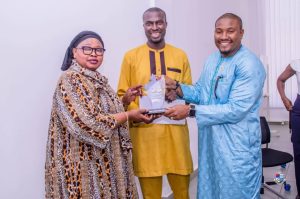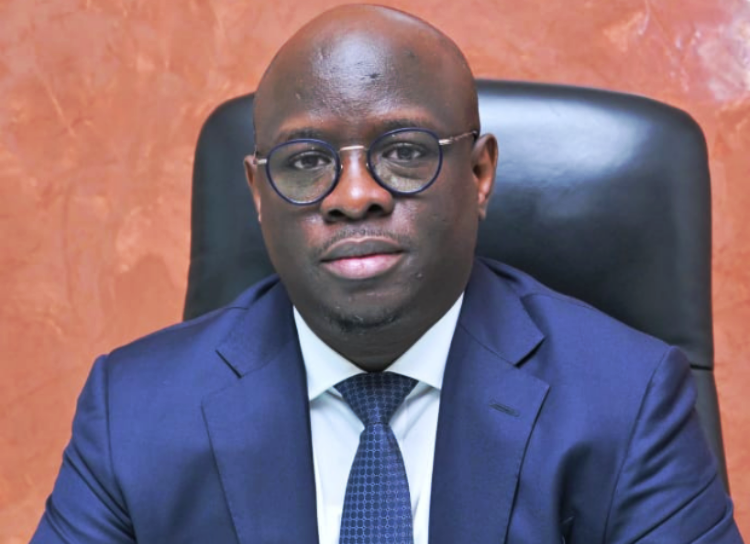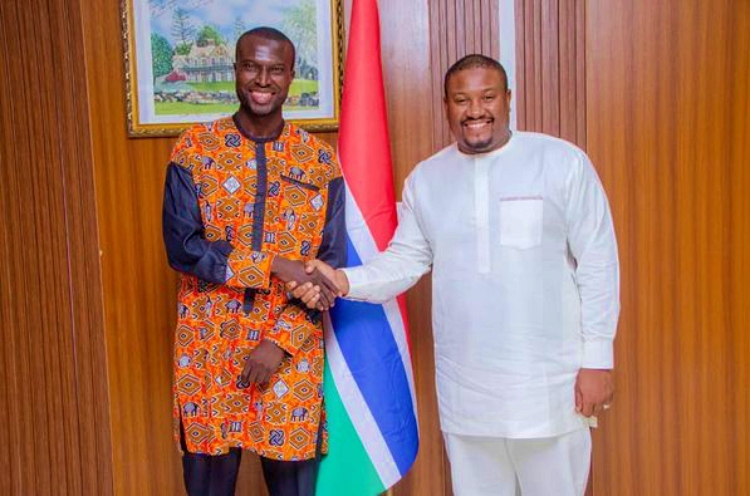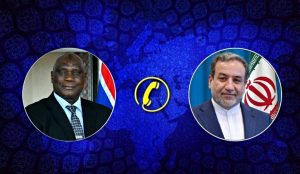Gambiaj.com – (BANJUL, The Gambia) – The United Democratic Party (UDP), Gambia’s main opposition force, is grappling with an escalating internal crisis following a controversial interview by Brikama Area Council Chairman Yankuba Darboe. His remarks, made on Pa Modou Bojang’s popular Membekering show, have laid bare the fractures tearing at the heart of the party, revealing a potentially irreparable divide over leadership succession and ethnic-driven loyalty politics.
In a blunt display of disdain for the ambitions of Kanifing Municipality Mayor Talib Ahmad Bensouda, Yankuba Darboe publicly stated that he would consider resigning from the UDP if Bensouda emerged as the party’s flagbearer.
“UDP is not Talib’s party,” he asserted, making it clear that his allegiance is solely to the party’s long-time leader, Ousainou Darboe.
“If they tell me that has changed and it is now Talib, I will find my way somewhere else,” he warned.
More than just personal preference, Yankuba Darboe’s comments appeared to assert a territorial claim over the West Coast Region’s political space.
He openly condemned Talib Bensouda for undertaking political activities in the region without consulting him and declared that any aspirant seeking the party’s presidential nomination “must get his support” as the region’s chairman. “Without my support,” he added, “any such candidate’s goals will fail from the start.”
The statements sparked immediate backlash within the UDP’s base. On social media and public forums, numerous party activists and supporters decried the divisive rhetoric and accused Yankuba Darboe of sowing seeds of sectarianism and tribal favoritism.

One such voice, UDP stalwart Amadou Njilan, described Yankuba’s behavior as “identity politics fueled by dangerous and myopic thinking,” and accused the party’s aging patriarch, Ousainou Darboe, of silently enabling such narratives to maintain control.
Njilan went further to suggest that Talib Bensouda consider launching a new political movement inspired by youth leadership, inter-ethnic solidarity, and governance reform—likening such a potential shift to Senegal’s PASTEF revolution.
Adding to the turmoil, several UDP militants are now reconsidering past dissenters’ positions. Notably, former UDP executive member Amadou Scattred Janneh—who controversially backed the ruling party’s Seedy Ceesay in the Brikama Area Council chairmanship race—has seen renewed vindication. Critics of Yankuba Darboe now point to that episode as early evidence of the chairman’s unfitness for higher responsibility.
The discontent also reached emotional breaking points for several top UDP influencers and militants.
Bubacarr Bob Touray described the crisis as demotivating, while others like Maget Njie and Sainey Marong announced their withdrawal from party activities, citing tribalism, arrogance, and intolerance. “I hate jealous and tribalistic people… I am done,” said Njie in a post filled with disillusionment.
The impact even touched on gender dynamics within the party. Responding to the controversy surrounding Banjul Mayor Rohey Malick Lowe’s complaints of internal abuse, Yankuba Darboe dismissed her concerns, implying her gender made her less capable of withstanding political criticism—a remark that further alienated many within the UDP.
Meanwhile, Talib Bensouda, usually restrained in public spats, issued a cryptic and emotional Facebook post: “We are close to the limit! The end is near!” —a reaction that underscored the gravity of the unfolding crisis before being quickly deleted.
For many political observers of Gambian politics, it is now obvious that the UDP’s once-cohesive image as the country’s most organized opposition party is fast crumbling.
With the 2026 elections looming and its founding leader Ousainou Darboe aging, the party’s failure to manage succession politics and internal rivalries may open the floodgates to defections, fragmentation, and the rise of alternative movements.
If the tone and tenor of Yankuba Darboe’s interview are anything to go by, the UDP may be inching not toward renewal, but toward an existential breaking point—one that pits personal loyalties and ethnic fault lines against a fading legacy of unity and democratic promise.










